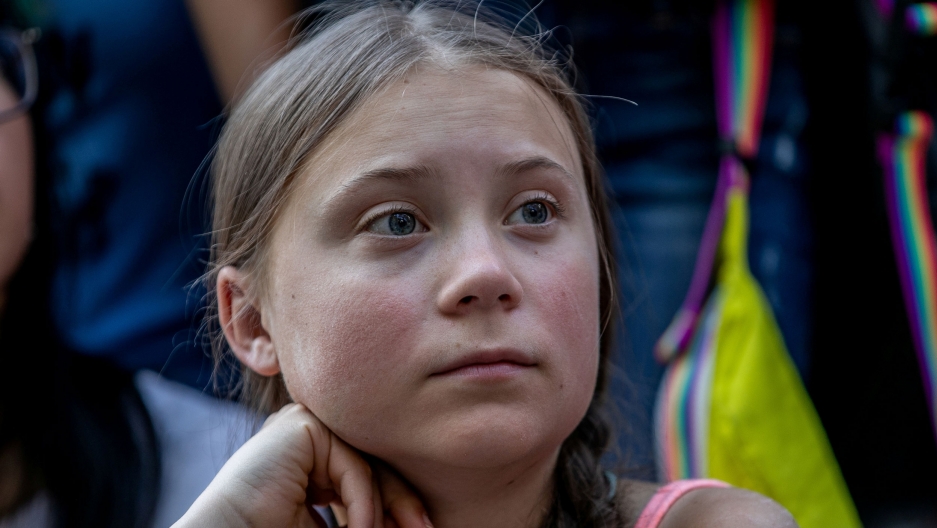NEW YORK/MADRID, (Reuters) – Greta Thunberg, the 16-year-old Swede who inspired millions of young people to take action against climate change, has been named Time Magazine’s Person of the Year for 2019.
Thunberg launched a grassroots campaign aged 15 by skipping school every Friday to demonstrate outside Swedish parliament, pushing for her government to meet its ambitious goals to curb carbon emissions.
Her actions quickly captured people’s imagination, and in September this year millions of people took to the streets in cities across the world to support her cause.
“In the 16 months since (her protests began), she has addressed heads of state at the U.N., met with the Pope, sparred with the President of the United States and inspired 4 million people to join the global climate strike,” the magazine said.
She is the youngest individual to have won the accolade.
“Margaret Atwood compared her to Joan of Arc. After noticing a hundredfold increase in its usage, lexicographers at Collins Dictionary named Thunberg’s pioneering idea, climate strike, the word of the year,” Time added.
Thunberg, who turns 17 in January, is currently in Madrid at a United Nations climate summit where world leaders are wrangling over how to implement a 2015 Paris agreement designed to avert potentially catastrophic global warming.
She was typically blunt in her assessment of politicians’ efforts.
“It seems to have turned into some kind of opportunity for countries to negotiate loopholes and to avoid raising their ambition,” she said on stage, drawing applause from an audience that included dozens of her supporters.
“I’m sure that if people heard what was going on and what was said … during these meetings, they would be outraged.”
Former U.S. Vice President Al Gore, a longtime environmentalist, said the magazine made a “brilliant choice” in choosing the reluctant celebrity.
“Greta embodies the moral authority of the youth activist movement demanding that we act immediately to solve the climate crisis. She is an inspiration to me and to people across the world,” Gore said.
‘HOW DARE YOU?’
Thunberg, who said her Asperger’s syndrome can be an advantage in her campaigning, sailed across the Atlantic Ocean for 20 days to get to the Madrid event in order to avoid travelling by air.
“Flight-shaming” has gained momentum, especially in Europe, where some travelers concerned about the environmental impact of flying are seeking alternative forms of transport.
Thunberg’s uncompromising stance has brought her into confrontation with some of the world’s most powerful people.
A video of her giving U.S. President Donald Trump what media described as a “death stare” at a U.N. climate summit in New York in September went viral on social media.
Trump has questioned climate science and has challenged every major U.S. regulation aimed at combating climate change.
During a speech at around the same time, she bristled with anger.
“This is all wrong. I shouldn’t be up here. I should be back in school on the other side of the ocean, yet you all come to us young people for hope. How dare you?” she told delegates.
“You have stolen my dreams and my childhood with your empty words.”
Brazilian President Jair Bolsonaro this week called Thunberg a “brat” after she criticized mounting violence against indigenous people in which two Amazon tribesmen were shot dead.
The activist retorted by changing the biographical description on her Twitter account to “Pirralha,” the Portuguese word Bolsonaro used to insult her.










